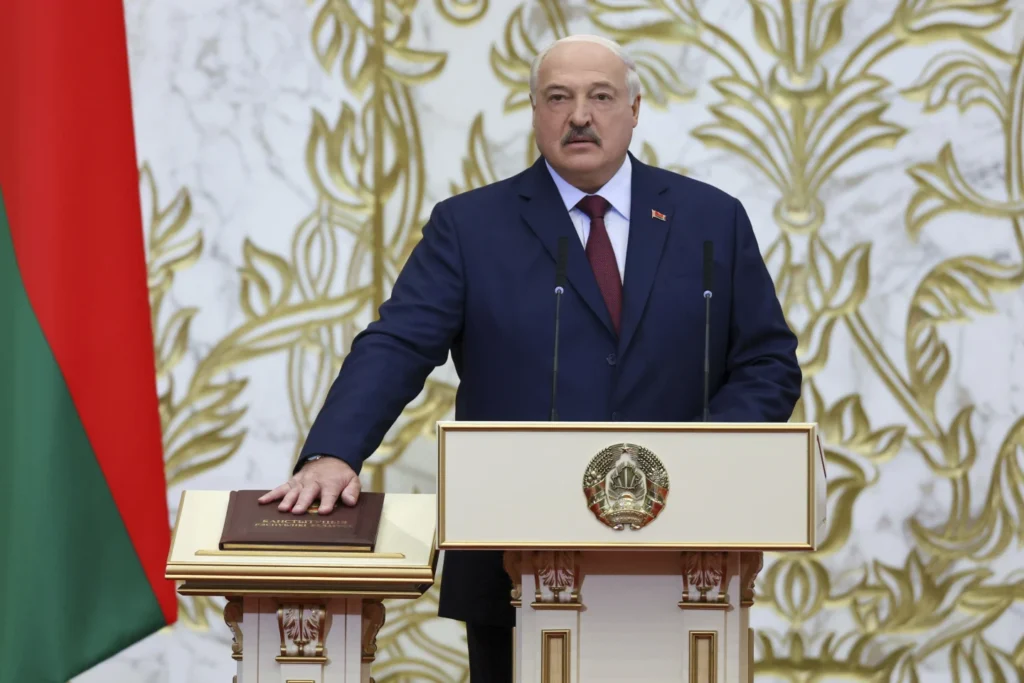MINSK, Belarus – Belarusian President Alexander Lukashenko was sworn in Tuesday for a seventh term, reaffirming his grip on power while dismissing opposition critics, stating, “You have no future.” The 70-year-old leader, often labeled “Europe’s last dictator,” claimed in his inauguration speech that Belarus has “more democracy than those who cast themselves as its models.”

The ceremony at the Independence Palace in Minsk was attended by thousands of Lukashenko’s supporters. Meanwhile, hundreds of opposition activists living abroad staged anti-Lukashenko protests to mark the anniversary of Belarus’ brief independence in 1918.
Lukashenko’s reelection in the tightly controlled Jan. 26 election, declared a landslide victory by the Central Election Commission with nearly 87% of the vote, has been widely condemned by opponents as fraudulent. The ballot featured four nominal challengers, all of whom expressed support for his rule.
Opposition figures, independent journalists, and activists have been imprisoned or forced into exile under Lukashenko’s years-long crackdown on dissent. Following the disputed 2020 election, Belarus saw its largest protests in history, with over 65,000 arrests, reports of police brutality, and the shutdown of independent media and NGOs. Western nations imposed sanctions in response.
Human rights groups estimate that Belarus currently holds over 1,200 political prisoners, including Nobel Peace Prize laureate Ales Bialiatski, founder of the Viasna Human Rights Center. In a joint statement, Viasna and 10 other rights organizations condemned the election, calling it illegitimate and conducted “in an atmosphere of total fear.”
Lukashenko, in power since 1994, has relied on political and financial backing from Russian President Vladimir Putin, an alliance that helped him withstand the 2020 uprising. He also permitted Russia to use Belarusian territory to launch its invasion of Ukraine in 2022 and later hosted Russian tactical nuclear weapons.
Exiled opposition leader Sviatlana Tsikhanouskaya, who fled Belarus after challenging Lukashenko in 2020, vowed to continue the fight for democracy. “Our goal is to break away from the Russian occupation and Lukashenko’s tyranny, and to return Belarus into the European family of nations,” she said in a speech at the Lithuanian parliament.
Some analysts suggest Lukashenko may attempt to improve relations with the West during his seventh term. “He has been signaling a willingness to engage in dialogue and normalize ties in order to reduce dependence on the Kremlin and ease Western sanctions,” said independent political analyst Valery Karbalevich.



